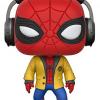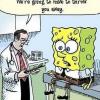Hi
I would like to know on how to calculate the temperature deviation for hot boiling point.
My company’s procedure on thermometer calibration for hot boiling is that once the water is rolling boil (apprx 100C), take out from stove, then test the thermometer along with the master thermometer (for 1 minute).
We always get the reading like this:
Master thermometer:98C
Calibrated thermometer:97C
Therefore can we say the deviation is -1?
By taking out the water from the stove we never get the 100C, the least we can get is 98C & below.
Is our procedure and method of calculating deviation correct?
Thanks in advance!
- Home
- Sponsors
- Forums
- Members ˅
- Resources ˅
- Files
- FAQ ˅
- Jobs
-
Webinars ˅
- Upcoming Food Safety Fridays
- Upcoming Hot Topics from Sponsors
- Recorded Food Safety Fridays
- Recorded Food Safety Essentials
- Recorded Hot Topics from Sponsors
- Food Safety Live 2013
- Food Safety Live 2014
- Food Safety Live 2015
- Food Safety Live 2016
- Food Safety Live 2017
- Food Safety Live 2018
- Food Safety Live 2019
- Food Safety Live 2020
- Food Safety Live 2021
- Training ˅
- Links
- Store ˅
- More
















